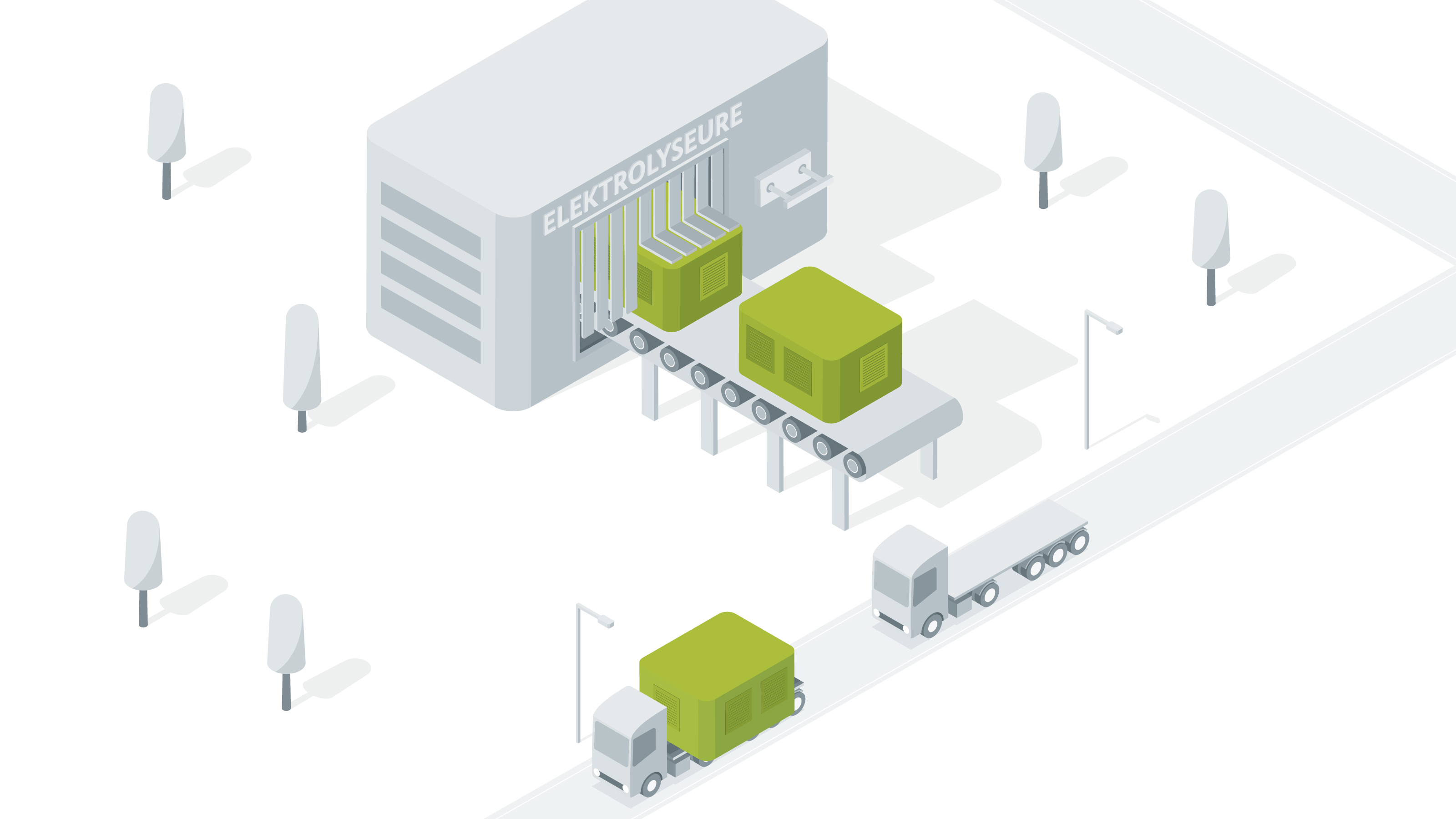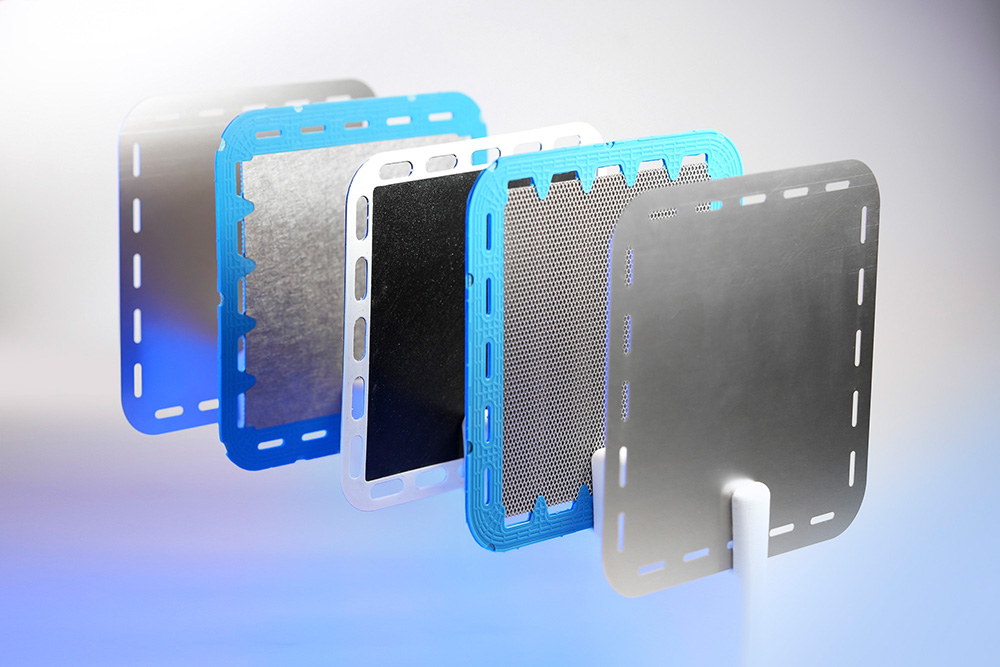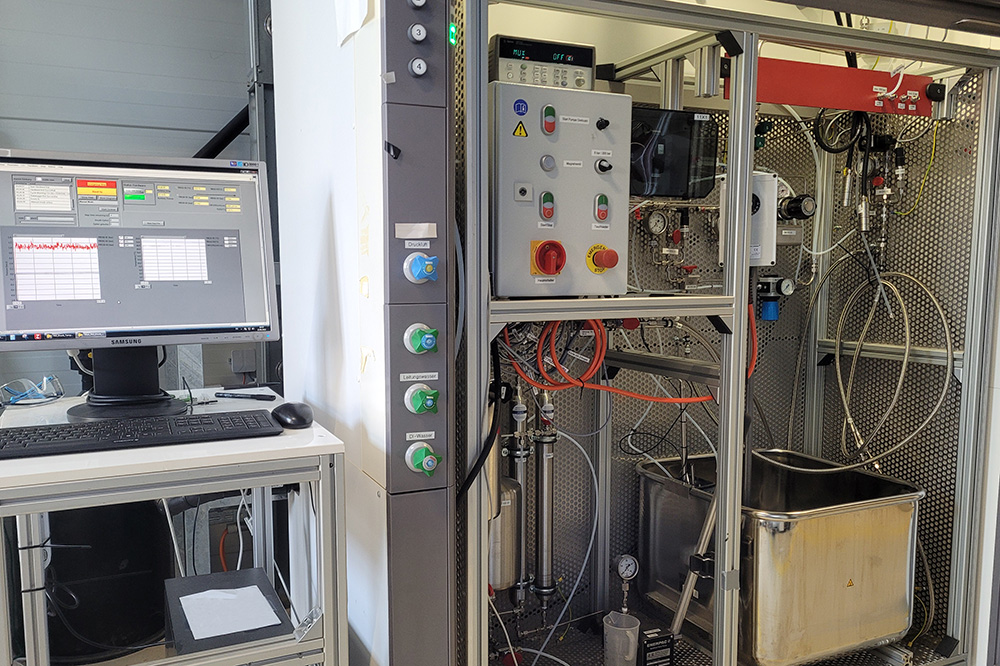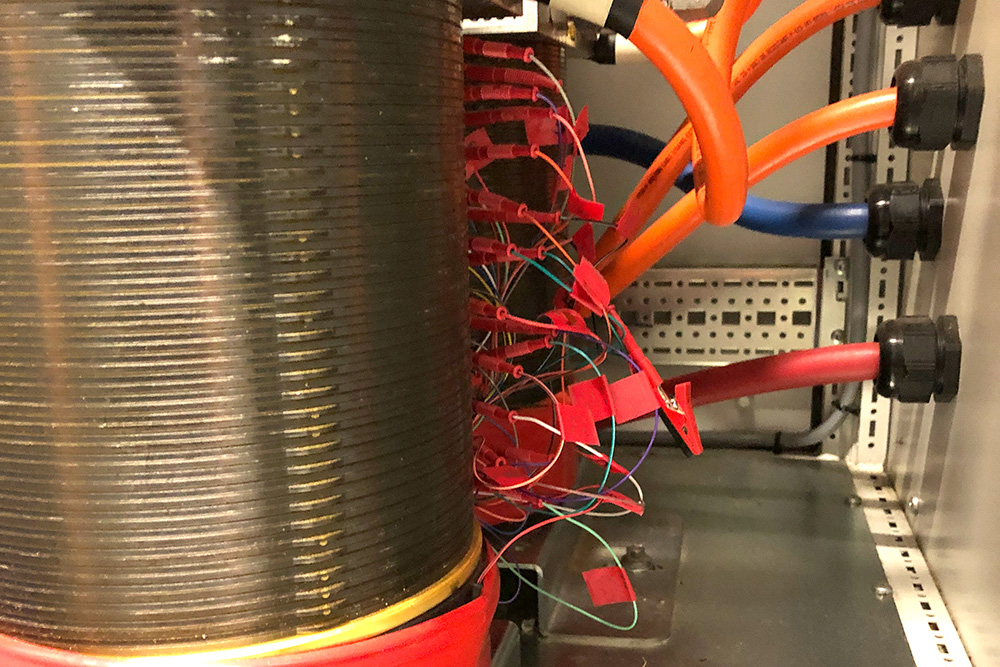| Duration: | 05/2021 - 09/2025 |
| Contracting Authority/ Sponsors: |
Federal Ministry of Education and Research (BMBF) |
| Project Partners: |
|
| Website: | H2Giga flagship project |
| Project Focus: |
PEP.IN – H2Giga Project for the Industrialisation of PEM Electrolysis Production and Innovative Stack Component Development
The aim of the "PEP.IN" project, which is part of the H2Giga hydrogen flagship project, is to produce proton exchange membrane (PEM) electrolyzers competitively in large quantities. To this end, the partners are developing production technologies and processes that do not yet exist on the market in this form. The further developments and cost reductions in "PEP.IN" cover all stages of the value chain in the production of an electrolysis cell stack. Findings from the field of fuel cells for the automotive sector serve as a development approach for the automation and upscaling of electrolysis.

At present, PEM electrolysis stacks with a low degree of automation are primarily assembled by hand and in small quantities. The aim of the H2Giga project "PEP.IN" is to further develop new stacks to enable a high degree of automation in production and the production of large quantities.
Fraunhofer ISE is working on concepts for next-generation cell stacks and, together with the project partners, is testing new types of cell components and more cost-effective material combinations. We are also developing application-oriented and time-optimized test procedures and test protocols for the post-assembling of stacks, which are important for quality management.
We are supporting our industrial partners MAN and H-TEC in the conceptual development of a production line for protective coatings on metallic components such as bipolar plates and porous transport layers which is integrated into stack production. In addition, we are working on monitoring concepts for stacks in real operation, including the necessary hardware and software, in order to better predict the aging behavior of cell components.
We therefore contribute our extensive expertise in the field of PEM electrolysis to the following areas of stack production:
- Investigation of the optimization potential for automated production of all components in the stack, including the qualification and quantification of components and component properties
- Development of corrosion protection coatings for metallic components and integration of the necessary process steps into automated production
- Definition and testing of test protocols for post-assembling in stack production
- Collaboration on the "Design of Tomorrow" for next-generation stack concepts
- Development of commissioning procedures and conditioning protocols for PEM stacks
- Monitoring concepts and hardware solutions for assessing the aging condition of stacks in PEM electrolysis
"PEP.IN" is a sub-project of the hydrogen flagship project H2Giga, funded by the Federal Ministry of Education and Research (BMBF) and coordinated by Project Management Jülich. The "H2Giga" flagship project aims to develop the serial production of electrolyzers. Together, established electrolyzer manufacturers, suppliers from various technology sectors, including many small and medium-sized companies, as well as research institutes and universities are advancing existing electrolysis technologies.



